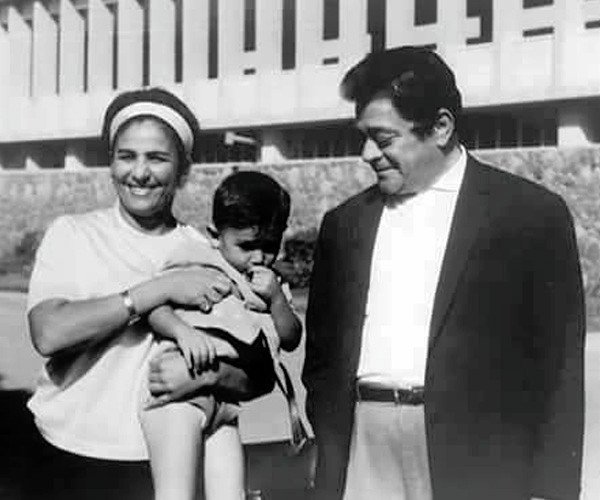* President Nasser gave him the First Class Medal of Science while President Sadat awarded him with a Certificate of Merit.
* When Al Dakn was young he moved with his family to El Minya in Upper Egypt, where he took up two sports, boxing and football.
* El Zamalek wanted to sign my father, but he refused since the club had a policy at the time that all their footballers had to shave their heads. My father had luscious hair and he had no intention to shave it all off.
Tawfiq Al Dakn was one of the most prolific film stars from Egyptian/Arabic cinema. He started his film journey in the 1950s and 1960s and extended all the way to the 1980s. Despite his talent and tenacity in playing a myriad of roles, he became most known for playing villains in films. He was able to give film villains a comedic flavor, something that distinguished his performances from that of his contemporaries.
Al Dakn starred in 233 films throughout his career, 33 of those were in the 1950s, 78 in the 1960s, 92 in the 1970s and finally 30 films in the 1980s. The first film he starred in was one on the beginnings of Islam, in which he played Omar Bin El Khataab’s sister’s Quran teacher. Among his most known films are “Derb El Mahabeel” (The Path of the Idiots), “Adham El Sharkawy”, “El Naser Salah El Din” (The Victorious Saladin), “Fe Baitona Ragol” (There’s a Man in Our House), “El Shaimaa”, “Sera’a Fe El Mina’i” (Conflict at the Sea Port), “El Qahera 30” (Cairo 30), “Leil w Kodban” (Night and Rods), “Kharag w Lem Ya3od” (He Went Out and Never Came Back), “Ibn Hamedo” (The Son of Hamedo) and “El Fatwa”. He also performed in a number of plays including “Sekat El Salama” (Safety Rail), “El Farafeer”, “El Mahrousa” (The Protected), and “Entaha El Dars Ya Ghaby” (The Lesson Has Ended You Idiot).
His work and dedication to the entertainment industry has not gone unnoticed, in 1956 he received a First Class Medal of Science and Arts and in 1978 he got a Certificate of Merit. Some of his individual performances received accolades as well; these include his roles in “Fe Baitona Ragol”, “El Shaimaa”, “Sera’ Fe El Mina’i”, “El Qahera 30” and “Leil w Kodban”.
Tawfiq Al Dakn passed away in November 1988 at the young age of 65. As this year marks the 31st anniversary of his passing, Majalla sat down with Al Dakn’s son Chancellor Mady Tawfiq Al Dakn, the head of the Association of Children of Golden Age Actors.
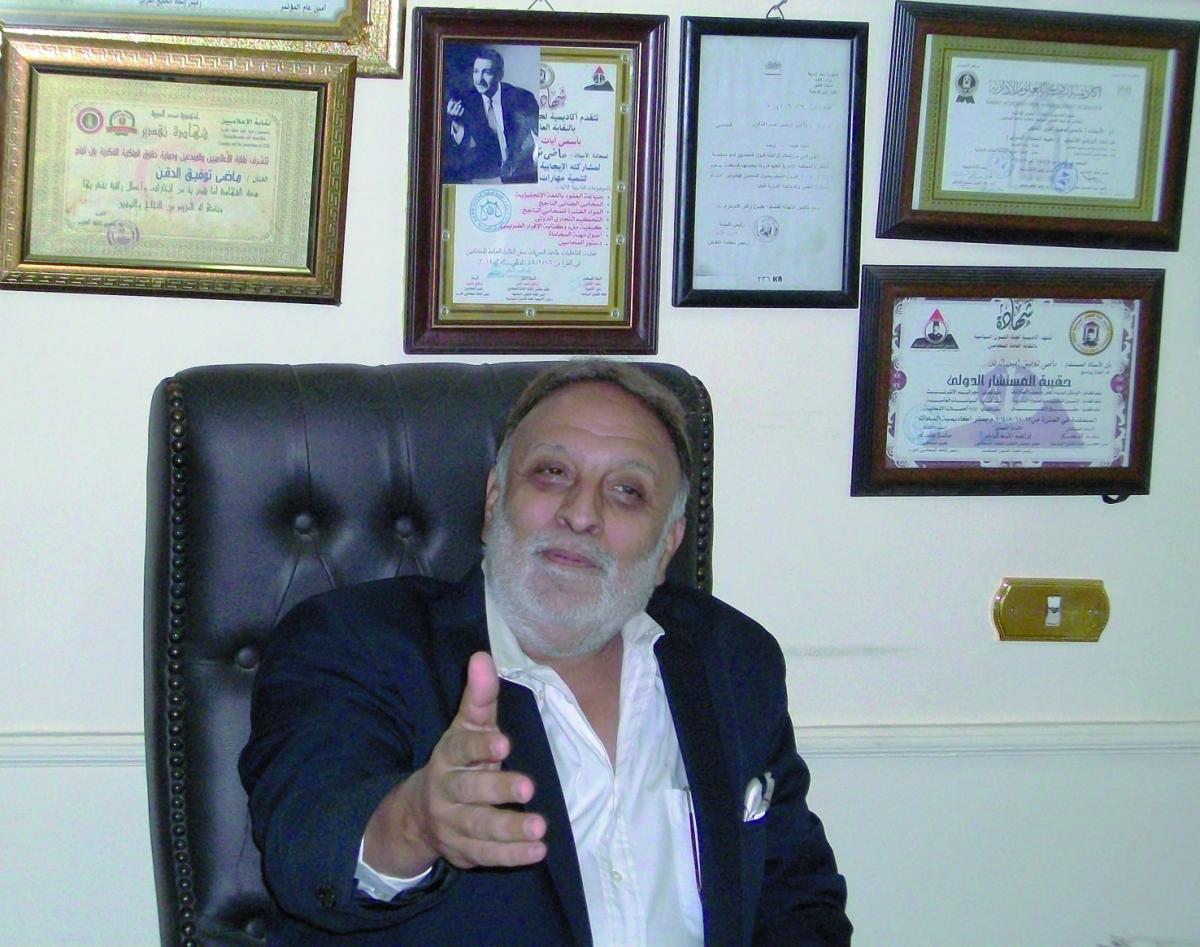
Q: What do you remember most about your father, Tawfiq Al Dakn?
A: I remember everything about him, for he is my father. I also greatly remember his film era which was teeming with artistry, love and trustworthiness.
Q: How did he treat you and your siblings around the house? Did you feel proud to be the children of such a big film star?
A: He was a kind and loving father. Despite his fame, he was never big headed and whenever he noticed one us showing off because of his fame, he would quickly straighten us out.
Q: Is it true that he was a professional footballer during his younger years, and played for El Zamalek SC?
A: Yes he was a professional football player, when he was young he moved with his family to El Minya in Upper Egypt, where he took up two sports boxing and football. He played in El Minya Football Club as a left-winger. One day El Minya played against El Zamalek, which they defeated and my father played brilliantly during that game. Afterwards, El Zamalek wanted to sign my father, but he refused since the club had a policy at the time that all their footballers had to shave their heads. My father had luscious hair and he had no intention to shave it all off so instead he opted for a move to El Sekka El Hadid SC.
Q: How did he get into the acting business?
A: Before he got into acting, my father did a number of different jobs. As he was the oldest one among his siblings, he felt the obligation of supporting his family. So he postponed his artistic ambitions to work as an accountant in a dairy factory. He used to go with my grandfather to the prosecutor’s office during the summer, that’s where they discovered his calligraphy skills, so the Counsel President of the Court hired him to write court case reports. So during that time he balanced his work with his studies.
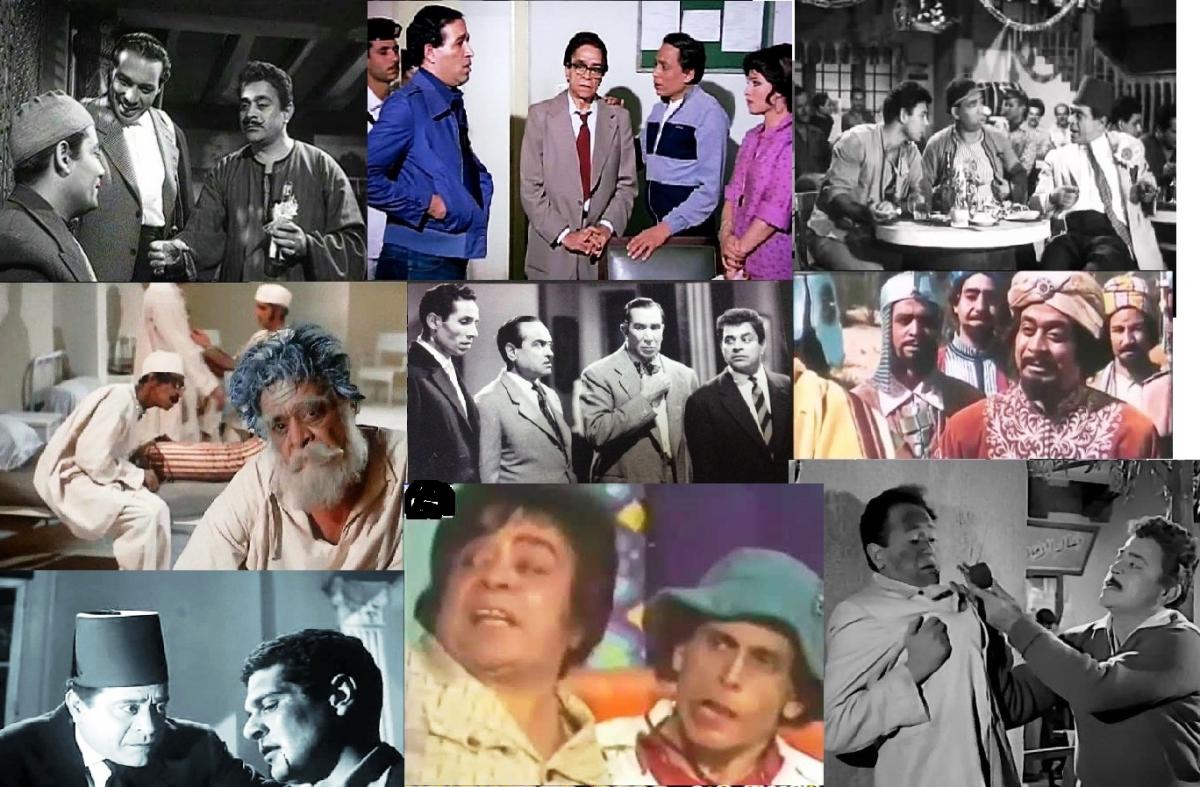
Q: When did his love for acting start? And is it true he used to turn his home into a mini-theater and do performances for the neighborhood children?
A: I’ve never heard of that anecdote. But I can tell you that my father was the president of his school’s acting troop in El Minya, so his talent was evident from an early age.
Q: Is it true that his mother, your grandmother, loved Mahmoud El Melegy’s acting and that’s why she wanted her son to be an actor, so that he could be like Melegy?
A: At the time, Mahmoud El Melegy was the most popular actor, which is why my grandmother viewed him as a positive role model for my father. As such, she encouraged him to go to the Acting Institute and she would secretly smuggle the fees for the institute in sandwiches which she would give to his cousins to give to him. The reason for that was because my grandfather was an Azhar alumnus and he wouldn’t approve of his son pursuing acting as a career, as a matter of fact most of society in the 1930s and 1940s wouldn’t have approved of such a career path.
Q: Was his enrollment at the Acting Institute the stepping stone that led to his acting career?
A: Fate seemed to have played a big part of my father’s rise to stardom. There was a play starring Rohia Khaled and Abd El Aziz Khalil was meant to play her opposite, but he could not do it since he fell ill. After one of his football games, Rohia came to him outside the dressing room and said he would be the perfect replacement. He refused at first citing his stage freight, but she persuaded him to do it and he quickly learned the lines. After his debut play, he went on to study at the Acting Institute.
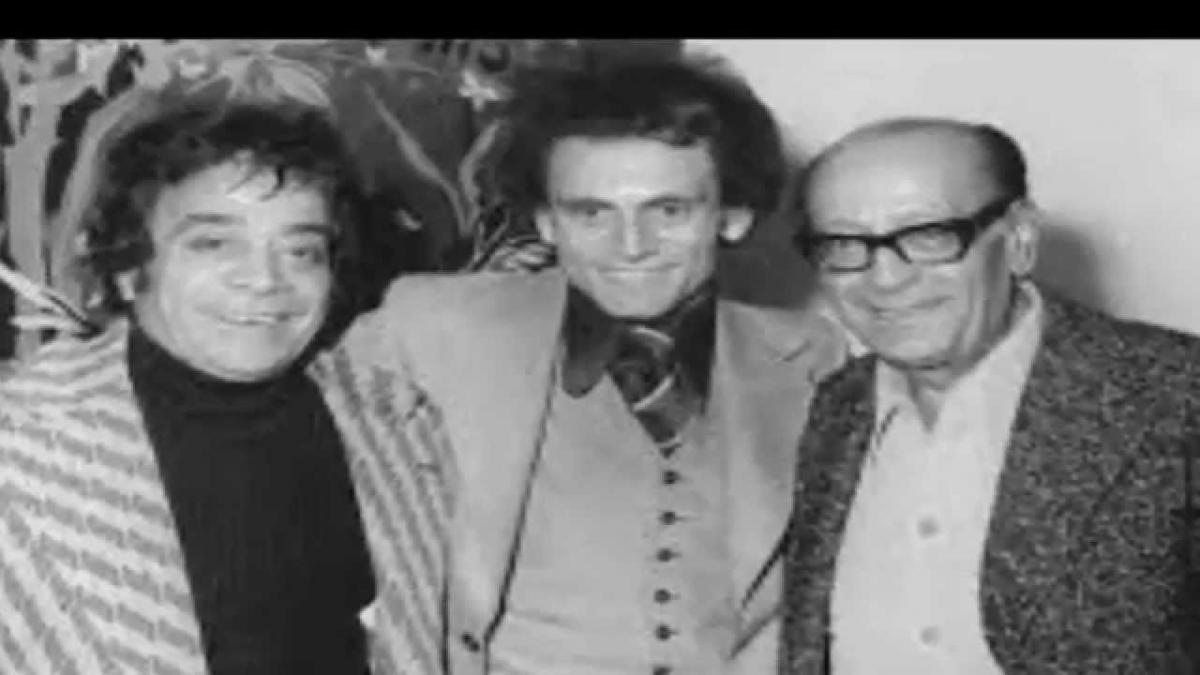
Q: He played a good guy in his first cinematic role, so how did he transition to playing evil characters?
A: Directors Yousef Shaheen and Tawfiq Saleh once watched my father perform in an independent play called “El Nas El Taht” (The People at the Bottom) and they noticed he had the features that would suit him for villainous roles. So Tawfiq Saleh chose him to play a role in the film “Derb El Mahabeel” (The Path of the Idiots), where he met with actor Fared Shawqy whom he formed a long friendship with. Soon after the passing of actor Anwar Wagdy, Fared Shawqy became the new star in the industry and he decided to nominate my father to play prominent roles in films such as “Sultan” and “Port Said” and others. Eventually my father became known as the actor who plays villains in films.

Q: Could you tell us about your father’s friendship with Mahmoud El Melegy?
A: My father was close friends with Fared Shawqy, Rushdy Abaza and Mahmoud El Melegy, and he was absolutely devastated when they passed. His mental wellbeing deteriorated after they left this world as he considered them lifelong friends.
Q: Did your father have any political leanings, and what was his relationship like with politicians?
A: President Abd El Nasser gave him the First Class Medal of Science while President Sadat awarded him with a Certificate of Merit. He became one of the most prominent actors post the 1956 Revolution and he received national recognition, just like Abd El Halim Hafiz and other performers at the time.
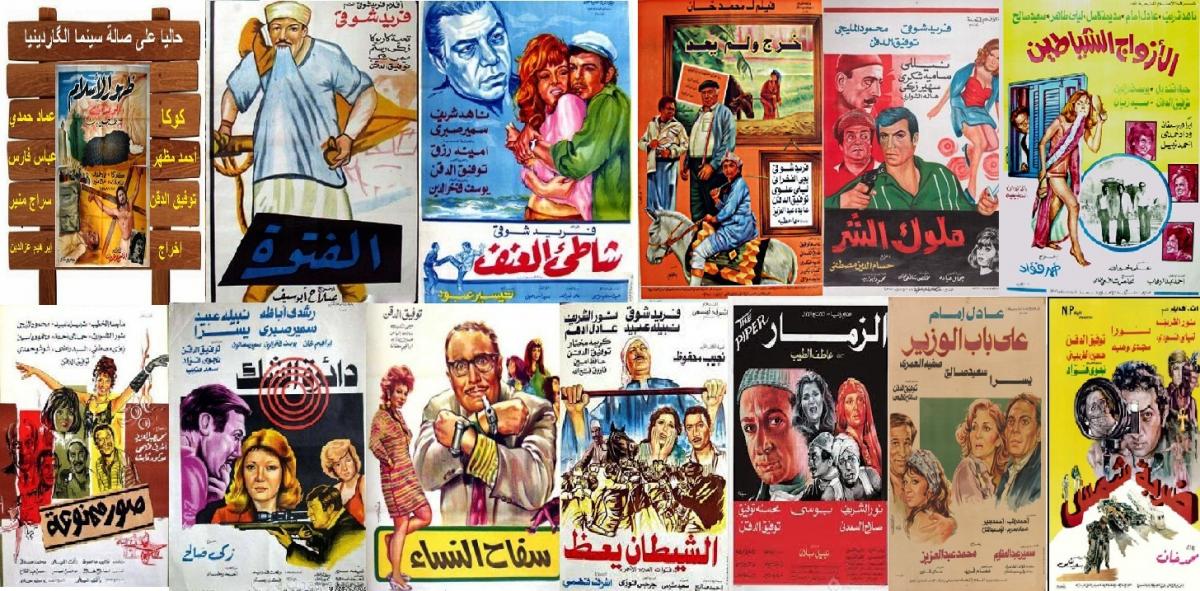
Q: Who did he like more, Abd El Nasser or Sadat?
A: He loved both leaders, as they appreciated him. President Sadat, who was known for using colloquial expressions and anecdotes in his speeches, once recalled the time he was working for El Gomhereya Newspaper: “I once worked for El Gomhereya where I would write about Samiha Ayoub and Tawfiq Al Dakn” Of course, my father would smile whenever he heard the president mentioning his name.
Q: Could you shed a light on your father’s work with Adel Imam and Mohamed Sobhi?
A: He initially started working with director Galal El Sharkawy on a play called “Dababes” (Needles), but the production fell through. So instead he went to act in another play titled “Entaha El Dars” (The Lesson is Over) which starred Mohamed Sobhy and was directed by El Said Rady. He would go on to star alongside Adel Imam in a number of projects such as the film “Ala Bab El Wazir” (At the Minister’s Doorstep) and the TV series “Ahlam El Fata El Ta’er” (A Flying Boy’s Dreams). My father would always love interacting and working with young actors, and he would always tell them that he learns from them just as much as they learn from him. My father also worked as an instructor in the national theater where he had the honor of teaching many young actors at the time like Salah Kabeel, Khaled Zaky and Ashraf Abd El Ghafor. He was also the first person to nominate Khaled Zaky for villainous roles.
Q: Why haven’t you or your siblings pursued acting careers? Was that at the behest of your father’s request?
A: No he never pushed us away from performing arts, and he had nothing to do with our decision not to pursue acting. The thing is, acting is a risky career choice and the fact that talent can’t be inherited we couldn’t exactly go into the family business, per se.
Q: Is it true that your father dreamt of his death before it happened?
A: It wasn’t a dream, but one day he suddenly woke up saying “Shubra’s air is in my lungs”, Shubra is a district in North Cairo where our relatives live. After which he demanded that we go to Shubra so that he could see his siblings, so we took my car at night and drove to Shubra, where he spent time with my uncle and aunts, and he also proceeded to call his siblings that couldn’t come that day. Later as we were driving home, we stopped at a traffic signal and he sarcastically quipped “It looks like either I will die soon, or one of them (his siblings) will die soon. Good riddance I say.” My dad was always sarcastic and a bit of a philosopher. After that night, his health deteriorated and he died in hospital within a week.
Q: Could you tell us more Association of Children of Golden Age Actors?
A: It’s an association founded by children of actors from the Golden Age of Egyptian cinema, and we strive to win the royalties for our parents’ films.
